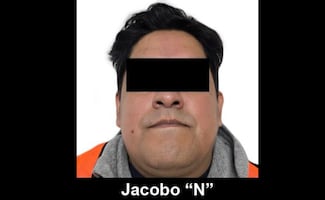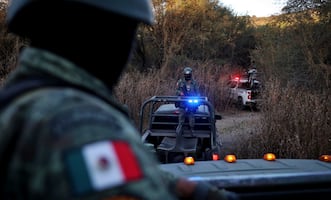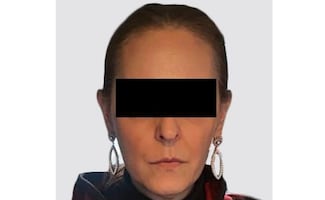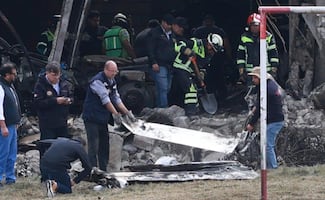Más Información

Vinculan a proceso a "El Yeicob", socio del empresario Raúl Rocha, por delincuencia organizada; le dictan prisión preventiva

Vinculan a proceso a "El Limones" por narcotráfico y posesión de armas; continúa en prisión en el Altiplano

UIF respalda sanciones de EU contra el Cártel de Santa Rosa de Lima; fortalece esfuerzos conjuntos para reducir criminalidad, destaca
The U.N. General Assembly held elections on Wednesday, including for two hotly contested seats on the U.N. Security Council .
Five new council members
are elected every year and this year Canada , Ireland , and Norway battled for two Western seats and Kenya and Djibouti competed for one African seat. India ran unopposed for the Asia-Pacific seat and Mexico ran unopposed for the seat for Latin America and the Caribbean.
With 187 votes in favor and 5 abstentions, Mexico was elected to the Security Council for the period that will go from January 1, 2021 through December 31, 2022 .

The Security Council is the U.N.’s most powerful body and has five permanent members — the United States, Russia, China, Britain, and France — and 10 members elected by the General Assembly for two-year terms , with seats allocated to regional groups.
Winning a seat on the council is considered a pinnacle of achievement for many countries because it gives them a strong voice on issues of international peace and security ranging from conflicts in Syria , Yemen , and Ukraine to the nuclear threat posed by North Korea and Iran to attacks by extremist groups such as the Islamic State and al-Qaida.
Before the coronavirus pandemic , countries running for Security Council seats often invited ambassadors for lavish visits to their nations, put on dinners and held receptions with entertainment, and sent senior government officials around the globe lobbying for votes. But the virus has curtailed all of that since March .
Recommended: U.N. urges Mexico to protect journalists and activists
Normally, ambassadors from the 193 U.N. member states would meet in the horseshoe-shaped assembly chamber at U.N. headquarters overlooking New York’s East River and vote by secret ballot for new Security Council members. But because of the coronavirus, member states adopted a new procedure of voting at the assembly during spaced-out time slots starting at 9 a.m. EDT Wednesday to avoid a large gathering and ensure social distancing.
Assembly President Tijjani Muhammad-Bande
said that in addition to voting for the council seats, ambassadors or their representative would elect new members of the U.N. Economic and Social Council and his successor as head of the General Assembly .
“Since the onset of the COVID-19 pandemic , we have all had to work under extraordinary conditions to overcome the myriad of challenges facing us,” Muhammad-Bande said. “Indeed, the forthcoming elections represent our common commitment to ensuring the uninterrupted continuation of the important work of the United Nations, in accordance with the values and principles of the United Nations Charter .”
Recommended: Mexico to investigate officials who released suspect involved in Ayotzinapa case
The General Assembly presidency rotates by region every year and there is only one candidate to lead the assembly’s 75th session starting in September — Volkan Bozkir of Turkey, selected by Western Europe and other states group.
The 18 candidates for seats on the economic council all ran unopposed . They are Liberia , Libya , Madagascar , Nigeria and Zimbabwe from Africa; Indonesia , Japan and Solomon Islands from Asia-Pacific states; Bulgaria from Eastern Europe; Argentina , Bolivia , Guatemala , and Mexico from Latin America and the Caribbean ; and Austria , France , Germany , Portugal and the United Kingdom from the Western group.
Recommended: U.N. urges Mexico to fight femicide
mp
Noticias según tus intereses
[Publicidad]
[Publicidad]











